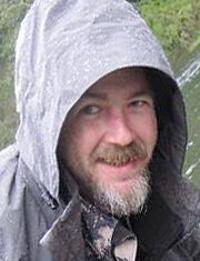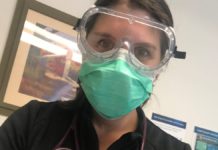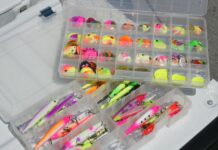I was born and raised in the Blue Mountains and have spent most of my life fishing for steelhead on my home waters of the Grand Ronde and the Wallowa.
My wife and I own an archery and fly fishing shop in La Grande — the only fly shop in Union County. Those of us who hunt and fish in these mountains know what we have here in Northeast Oregon. It’s why I’ve never left. And as a steelheader, I also know that what we have is worth protecting.
Steelhead bring in tremendous economic, social and cultural value to our region when they return to our local rivers each fall. More local businesses than you can count traditionally have relied on steelhead anglers to stay viable or even stay open — from shops and outfitters to restaurants and motels to gas stations and coffee shops and just about everything in between. Recent steelhead fishing closures in Idaho and their crippling impact on businesses and whole communities up and down the river tell you all you need to know about steelhead’s economic importance — and what we have to lose. These legendary fish have been sounding the alarm for years and it’s time we listened up.
The Grande Ronde is an important anchor for these Snake River steelhead, responsible for what Oregon Department of Fish and Wildlife estimates is about one-quarter of the wild steelhead crossing Lower Granite Dam on their way into the upper reaches of Northeast Oregon and Idaho.
Historically, the Grande Ronde River and its tributaries had abundant stocks of steelhead, Chinook salmon, and coho salmon. It was an incredibly diverse fishery. This is why the tribal nations lived in these areas. It is one of the many reasons settlers came here. Now, it is a fishery that has been relegated to life support, and it is time to do something about it. To put it simply — the Grand Ronde used to be a destination for anglers, but now very few people are traveling to Union County to fish for steelhead anymore. And it’s not because we don’t have the habitat.
These fish have to work hard to get to the wild stretches of high-quality habitat, not just in the Grand Ronde, but the cold, clean waters of the Imnaha and Minam rivers, among others. If we want to keep fishing at all, we’ve got work to do, and it starts by taking a hard look at the four dams on the Lower Snake River. What if we could clear the path for steelhead and take care of our neighbors upstream and downstream?
Our communities have been stuck in a cycle of conflict and uncertainty for decades. Today, the federal agencies released their latest management plan for the Columbia and Snake rivers, and unfortunately it’s more of the same federal failure we’re all too familiar with. When gridlock grips a region like this, bold leadership is one way out.
This year has been about challenges here — and everywhere — and as a community we’ve stood to meet them head on, together. In order to keep so much of this region’s identity intact — farms, fishing, tribes and communities — we need leadership, respect and collaboration to rise and create a more prosperous future we can all be proud of.
Fortunately, we’re seeing leadership building within the region. Calls from governors of Oregon and Washington for new collaboration involving every interest affected — from Northwest tribes, utilities, farmers, fishing, conservation and others — ensure everyone’s voice must be heard. New dialogues have started up in Idaho too. It turns out when we start talking to one another we realize we have a lot in common and we can solve each other’s problems if we have the courage to step up.
Now is a time to come together as a community that cares about our lifestyle that we have come to love, to come together and support a resource that we hold dear.
It gives folks like me reason to hope when leadership shows willingness to put gridlock behind us, get to work and find some answers that meet the challenges we’re facing. This is about so much more than a fish. This is about my business and countless others. It’s about a way of life, the pride of stepping up to protect what makes our home so special and the dignity of knowing we were brave enough to blaze our own path forward.
We’re no strangers to hard work here in Oregon, and I for one am ready to roll up my sleeves and get to it.
———
John Appleton is the owner of Alpine Archery and Fly in La Grande.
Credit: Source link































